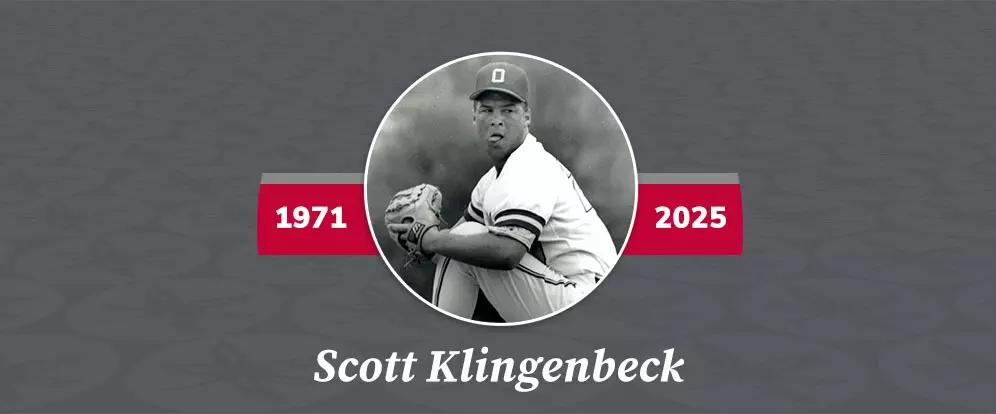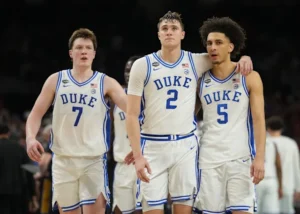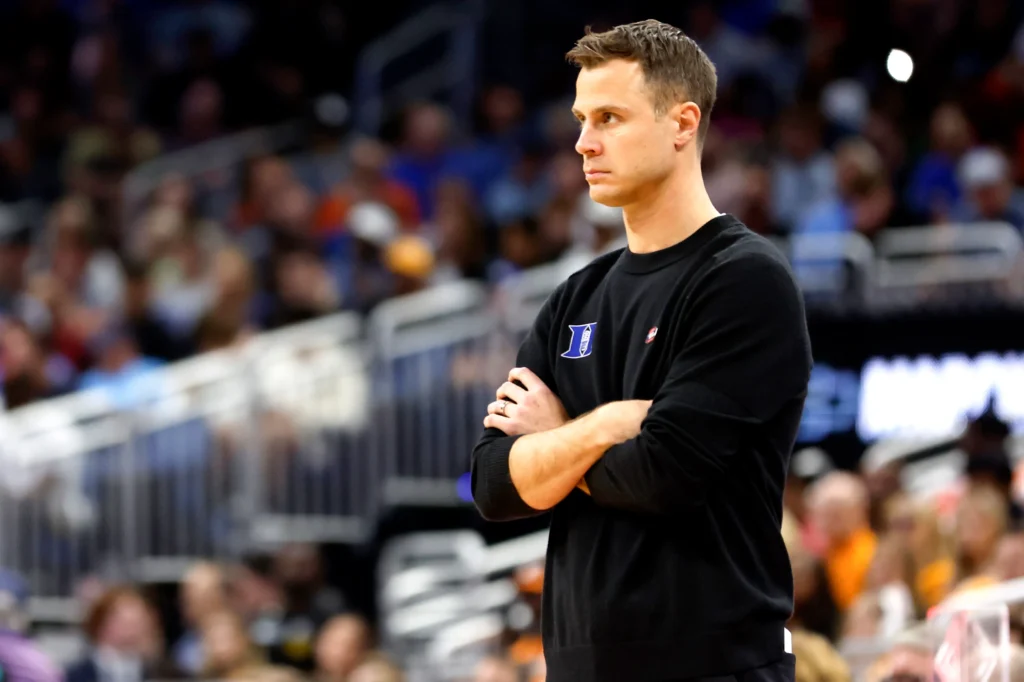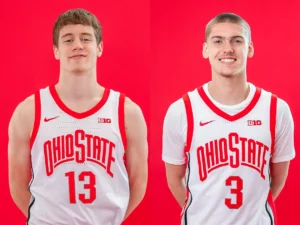
Scott Edward Klingenbeck brought pride to Cincinnati from the start. Born on February 3, 1971, he quickly became a standout athlete at Oak Hills High School, excelling in multiple sports before going on to play college baseball at Ohio State University. As a Buckeye, he showcased a dominant presence on the mound, winning 10 games in 1990 and 11 more in 1991. Those seasons still rank among the school’s top ten single-season win totals, evidence of a pitcher with both skill and competitive fire.
In 1992, Klingenbeck’s talent caught the eye of the Baltimore Orioles, who selected him in the fifth round of the MLB draft. He began his professional career with Kane County and immediately made an impression, going 3–4 with a 2.63 ERA in 11 starts. Two years later, on June 2, 1994, he made his Major League debut against the Detroit Tigers. Pitching seven solid innings and earning a win in his first outing, he made a statement: Scott Klingenbeck belonged in the big leagues.
That debut marked the beginning of a four-year Major League career that included stops with the Orioles, Minnesota Twins, and ultimately the Cincinnati Reds. Over those four seasons—1994 and 1995 with Baltimore, 1995 to 1996 with Minnesota, and a brief return in 1998 with Cincinnati—he pitched in 39 MLB games, starting 17 of them. He logged 138 innings and struck out 75 batters. His final Major League stat line read: 5 wins, 8 losses, a 6.91 ERA.
Though his numbers may not have been dazzling, Klingenbeck was often commended for his resilience. In 1995, he was part of a high-profile trade that sent pitcher Scott Erickson to Baltimore and brought him to Minnesota. It was a major opportunity, but one that came with pressure. Over 28 games with the Twins, Klingenbeck went 1–3 with an 8.30 ERA. Command issues and inconsistency challenged his stay in the majors, and by 1996, he was no longer part of Minnesota’s long-term plans.
He was briefly claimed by the Cleveland Indians but ultimately returned to Cincinnati, the city where it had all begun. After a year in the minors, he was promoted to the Reds in 1998, pitching in four games before being released. He continued playing in Triple-A through 1999, but his days in professional baseball were nearing their end.
While his baseball career may have reached its conclusion, Scott Klingenbeck’s story was far from over. Returning to Cincinnati, he established himself as a dedicated community member. He became a small business owner, running Hot Wings Sports Café, a local favorite gathering place for fans and families. More importantly, he began working with young athletes, mentoring them in local baseball clinics and youth programs. His passion for the game never faded, and he channeled it into helping the next generation of players grow and develop.
Friends, family, and former teammates describe him as a kind-hearted man who gave his time generously. He was active with the Oak Hills High School boosters and supported local youth leagues, including the JB Yeager Baseball program and the David Iery Foundation. Those who knew him personally speak of his warmth, humor, and the genuine care he showed for others.
Scott was more than an athlete. He was a coach, a mentor, and a friend. He poured his energy into helping young players improve—not just on the field, but in life. For many, his mentorship had a lasting impact, shaping values of discipline, teamwork, and confidence. In a world that often remembers athletes solely for their stats, Scott’s post-baseball life told a more profound and enduring story.
Unfortunately, his life came to a sudden and tragic end on May 20, 2025. He was just 54 years old. His unexpected passing sent ripples through both the baseball world and his hometown. While the cause of death was not publicly shared, some close to him acknowledged that Scott had long struggled with alcoholism. Despite his warm public persona and community involvement, he fought private battles that few fully understood.
That duality—public success and private struggle—is part of what makes Scott Klingenbeck’s story so relatable and human. His life was filled with highlights and setbacks, laughter and hardship, glory and vulnerability. In many ways, he represented the everyman athlete: one who tasted the pinnacle of professional sport but never let go of where he came from or who he was at heart.
Scott was surrounded by a loving and supportive family throughout his life. He is survived by his mother, Lois, his brothers Ken and Kevin, his sister Kim, and a large extended family of nieces, nephews, and great-nieces and nephews. They remember him not as a pitcher with a fastball, but as a brother, uncle, and son who brought joy to those around him.
A memorial Mass was held on June 9, 2025, at Our Lady of Victory Church in Cincinnati. The event drew a wide range of people from Scott’s life: childhood friends, former teammates, local business owners, and young players he had mentored. The gathering was a testament to how deeply he had impacted those around him. After the service, a celebration of life was held at Jim & Jack’s On the River, a familiar place to many who knew him well.
Donations in Scott’s memory were directed toward organizations close to his heart: JB Yeager Baseball and the Oak Hills High School boosters. These causes reflect his lifelong passion for youth sports and community involvement. His family’s choice of memorials shows what mattered most to him—supporting kids, building community, and giving back.
There was also a recognition among friends and loved ones that Scott’s challenges were real and painful. Dan Cronin, a childhood friend, reflected on Scott’s enduring struggle with alcohol and his inability to fully mature past certain points in life. Despite that, Cronin and others emphasized Scott’s enormous heart. He may have faced personal demons, but he never stopped caring for others. His empathy and loyalty were constants, even as he battled within.
The lessons from Scott Klingenbeck’s life extend beyond the baseball diamond. His story is one of early promise, perseverance through setbacks, quiet generosity, and the sometimes invisible burden of personal struggle. It reminds us that athletes are not immune to life’s difficulties, and that strength can take many forms—not just the physical ability to throw a baseball, but the emotional courage to mentor, to lead, and to love.
His passing also offers an opportunity to reflect on how communities support athletes after their playing days are over. Many professional athletes experience difficulties adjusting to life beyond sports. For some, the loss of identity, structure, and purpose can lead to mental health issues, substance abuse, or other challenges. Scott’s life invites a broader conversation about how we help our heroes after the cheering stops.
Baseball mourns the loss of Scott Klingenbeck—not because he was a superstar, but because he was one of the game’s many unsung contributors. He wasn’t a household name, but he represented something vital: the thousands of players who briefly reach the game’s summit, then return to their communities to live full, rich lives away from the spotlight. Scott’s journey, while marked by moments of pain, was ultimately one of commitment, generosity, and love.
Today, those who knew him remember not just the pitcher, but the person. A man who wore his hometown pride like a badge of honor. A mentor who helped kids believe in themselves. A brother who made his family laugh. A coach who offered wisdom to young ballplayers trying to find their way.
Scott Klingenbeck may be gone, but his spirit remains present in the lives he touched. His legacy lives on through every player he coached, every friend he encouraged, and every family member who carries his memory. In the quiet corners of Cincinnati—the fields where he once threw, the restaurant where he once hosted regulars, and the schools he once supported—his presence endures.
And so, baseball grieves—not just for the loss of an arm, but for the loss of a heart. Rest in peace, Scott Klingenbeck. You pitched your game, lived your truth, and left a legacy that no stat line could ever capture.







